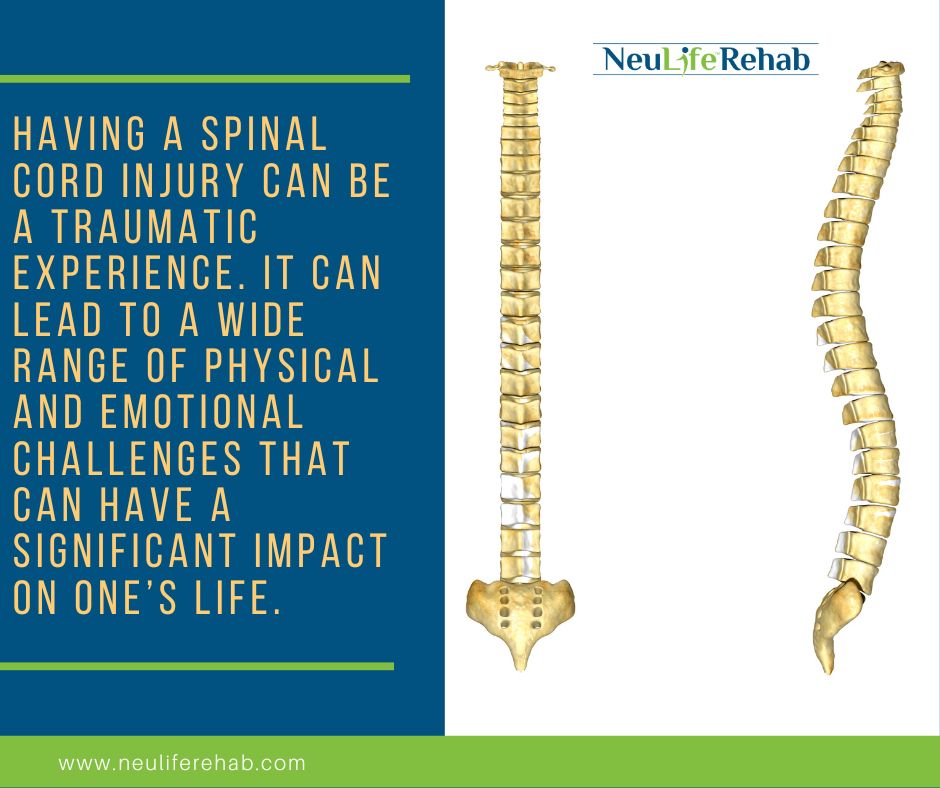In 2021, a report showed that there were around 18,000 new instances of traumatic spinal cord injury (SCI) every year in the United States, or 54 cases per million persons. Having a spinal cord injury can be a traumatic experience. It can lead to a wide range of physical and emotional challenges that can have a significant impact on one’s life. It is important to understand the difference between a complete and incomplete spinal cord injury in order to properly manage symptoms and plan for the future.
In this article, we will discuss the differences between these two types of spinal cord injuries. By understanding complete and incomplete spinal cord injuries, you will be better equipped to make informed decisions about your care and support in the future.
The main difference between a complete and an incomplete spinal cord injury is the level of function below the level of the injury. In a complete spinal cord injury, there is a total loss of function below the level of the injury. In an incomplete spinal cord injury, there is some function below the level of the injury.
This difference can have a significant impact on an individual's recovery and treatment options. In general, individuals with incomplete spinal cord injuries have a better chance of recovery and improvement in function than those with complete injuries.
Complete spinal cord injuries are devastating and require intensive medical care, while incomplete spinal cord injuries may still allow for some degree of recovery.
An overview of the treatment options for complete and incomplete spinal cord injuries is provided below.
The treatment for a complete spinal cord injury is focused on helping the patient manage the paralysis and other symptoms associated with the injury. This involves physical therapy to help maintain muscle tone and range of motion, as well as medications to help manage pain. In some cases, surgery may be required to repair structural damage.
This type of spinal cord injury may also require physical therapy and medications to manage pain, but the focus is on helping the patient regain as much mobility and sensation as possible. In some cases, surgery may be necessary to remove any tumors or other obstructions. Additionally, the patient may need to use assistive devices such as wheelchairs or braces to help them get around.
Regardless of the type of injury, it is important to seek medical attention as soon as possible to minimize the damage and maximize the chances of recovery. With the right treatment, many patients are able to regain some or all of their mobility and sensation.
When it comes to recovery from a spinal cord injury, the period of time for recovery can vary significantly depending on the type and severity of the injury. In general, complete spinal cord injuries tend to take longer to recover from than incomplete spinal cord injuries.
For a complete spinal cord injury, the recovery period can be lengthy and complex. Depending on the severity of the injury, it may take several months or even years to regain some degree of function.
An incomplete spinal cord injury typically involves some degree of function and sensation. In this case, the recovery period may be shorter and more successful than with a complete injury. The recovery period is likely to involve physical therapy and other treatments to help restore as much function as possible.
In either case, the recovery period for a spinal cord injury can be both physically and emotionally demanding. It is important for individuals to take all necessary steps to ensure their health and well-being during this period.
This may include getting enough rest, eating a healthy diet, and engaging in physical activity. It is also important to work closely with medical professionals to ensure that the recovery process is proceeding as expected and that any issues or concerns are addressed.

If you or someone you know has suffered a spinal cord injury, seek medical attention and support as soon as possible. Contact a medical professional or rehabilitation specialist to learn more about treatment options and resources available for individuals with spinal cord injuries.
NeuLife is an accredited rehabilitation facility that aims to provide each patient with a comprehensive program of medical treatment, nursing, and therapy that is thorough, highly integrated, and intensive. We start their rehabilitation as soon as possible and try to maximize their independence so that they may return home.
Besides spinal cord injury rehab, our highly experienced team also provides other types of rehabilitative services, such as:
No matter the type or severity of the injury, it is important to remember that recovery is possible. With the right care and support, individuals can achieve a high quality of life and live productive, meaningful lives.
Schedule a tour or contact us now by calling at 800-626-3876 and start your recovery today!
***
The material contained on this site is for informational purposes only and DOES NOT CONSTITUTE THE PROVIDING OF MEDICAL ADVICE, and is not intended to be a substitute for independent professional medical judgment, advice, diagnosis, or treatment. Always seek the advice of your physician or other qualified healthcare providers with any questions or concerns you may have regarding your health.

We know that choosing the next step in your recovery from a catastrophic illness or injury is complex. Together, we can help you take the next step.
Contact us with any questions today.